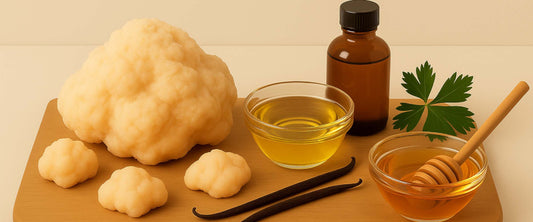
2. What “Cold-Pressed” Really Means — And Why It Matters for Your Skin
Not all olive oil is created equal—especially when it comes to your skin.
If you’re using olive oil in skincare, one detail matters more than most: whether it’s cold-pressed.
“Cold-pressed” isn’t a fancy marketing term. It’s a process. One that protects the delicate nutrients, antioxidants, and fatty acids inside the olive—so they actually survive long enough to reach your skin.
Here’s the deal: most commercial oils are heat-extracted or chemically refined. That means they’re exposed to high temperatures or solvents to increase yield and shelf life. The result? A clear, neutral oil with longer storage time—but stripped of the very things that make olive oil good for your skin in the first place.
Cold-pressing is different. It uses mechanical pressure—no heat, no chemicals—to extract the oil. It’s slower, more expensive, and produces less yield, but what you get is the real thing: rich in oleic acid, vitamin E, squalene, and polyphenols. These are the compounds that hydrate, heal, and protect your skin.

And there’s another reason it matters: skin is smart. It responds to ingredients that are whole and unprocessed. Cold-pressed olive oil is closer to how nature made it—and your skin can tell.
We use cold-pressed organic olive oil because it gives you the full benefit of the olive—nothing removed, nothing degraded. The color, the scent, even the texture—that’s the good stuff staying in.
It’s not about purity for purity’s sake. It’s about performance. Cold-pressed oils work better. And your skin deserves better.
Read next: Olive Oil’s Skin Benefits: Hydration, Barrier Repair, and Antioxidant Defense





